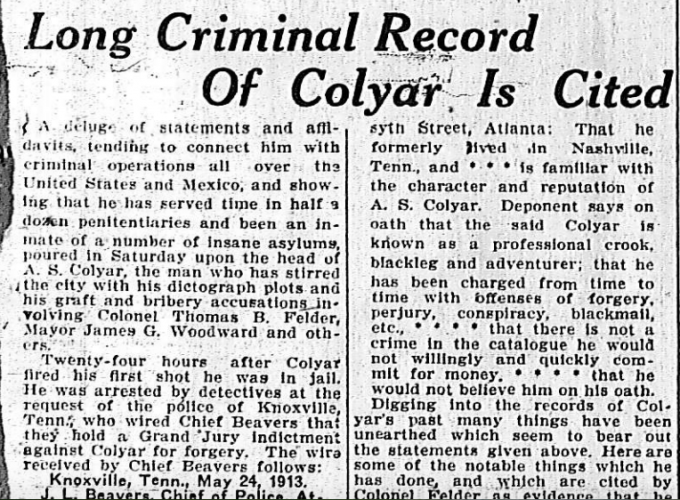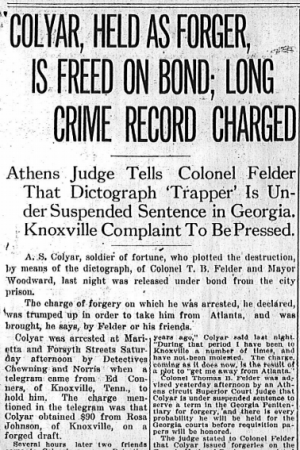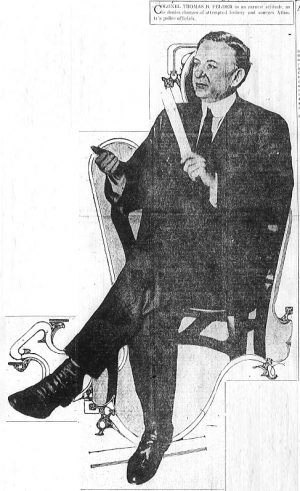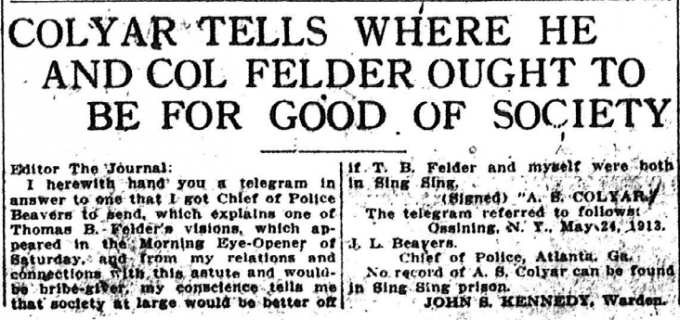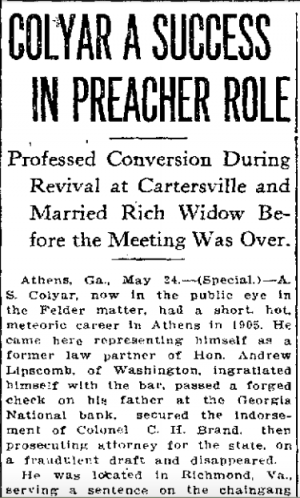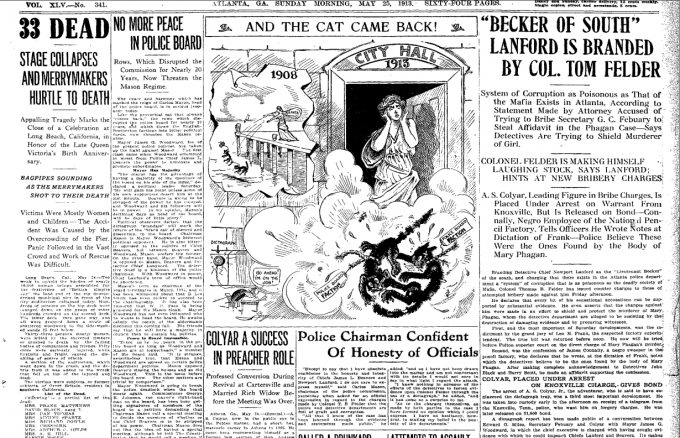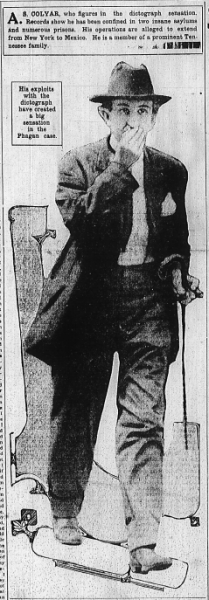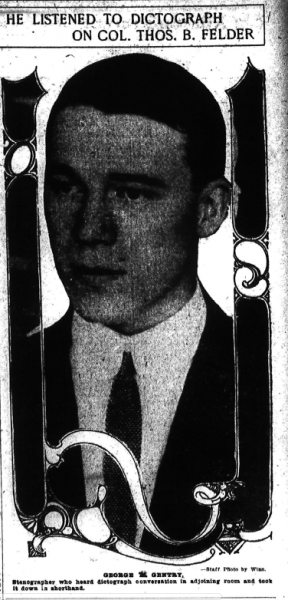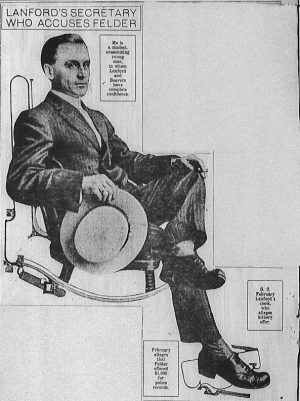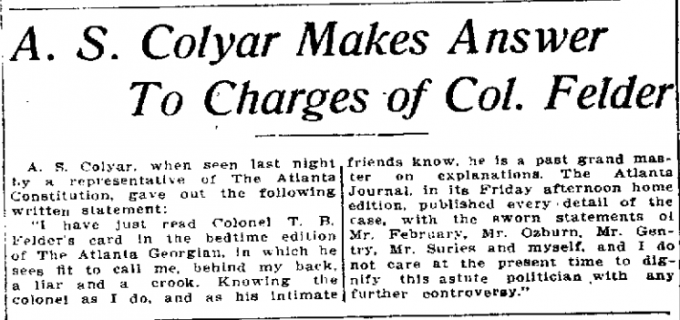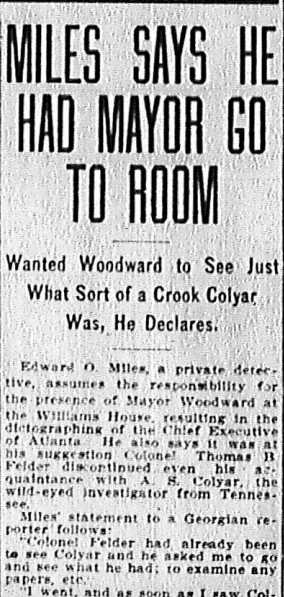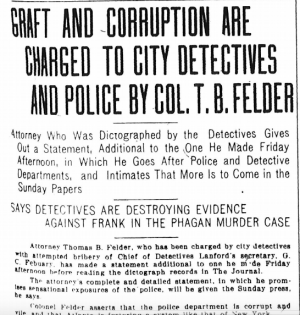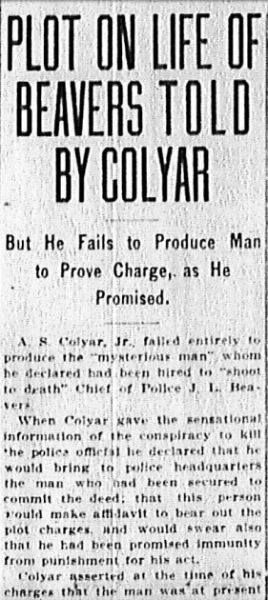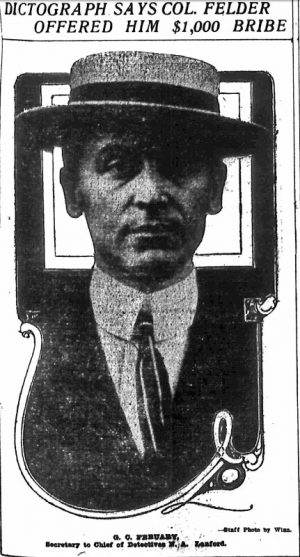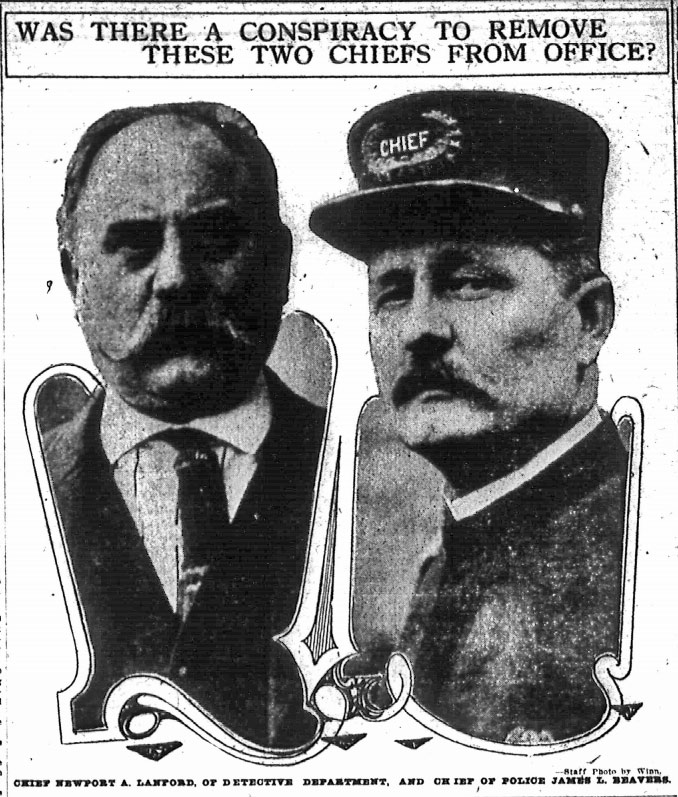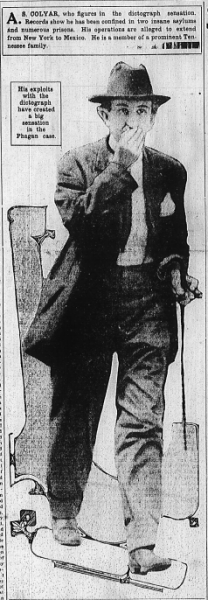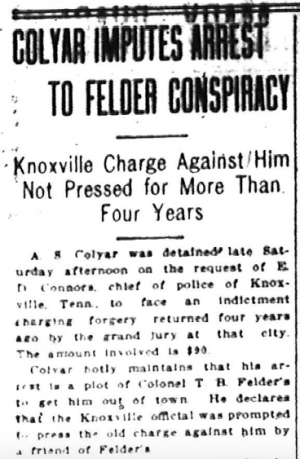 Another in our series of new transcriptions of contemporary articles on the Leo Frank case.
Another in our series of new transcriptions of contemporary articles on the Leo Frank case.
Atlanta Journal
Sunday, May 25th, 1913
Knoxville Charge Against Him Not Pressed for More Than Four Years
A. S. Colyar was detained late Saturday afternoon on the request of E. D. Conners, chief of police of Knoxville, Tenn. to face an indictment charging forgery returned four years ago by the grand jury at that city. The amount involved is $90.
Colyar hotly maintains that his arrest is a plot of Colonel T. B. Felder’s to get him out of town. He declares that the Knoxville official was prompted to press the old charge against him by a friend of Felder’s.
Colyar was taken into custody by city detectives on the street and accompanied them to police headquarters. He was closeted with Chief of Police Beavers and Chief of Detectives Lanford for nearly an hour. Later he secured bond and was allowed his liberty.
SAYS FELDER CAUSED ARREST.
“I have been in Knoxville many times since the indictment was returned against me,” Colyar told Chief Beavers, “and there never was any attempt to press the charge or arrest me. If Felder had not devised the plot, no action would have been taken at this time. Continue Reading →

